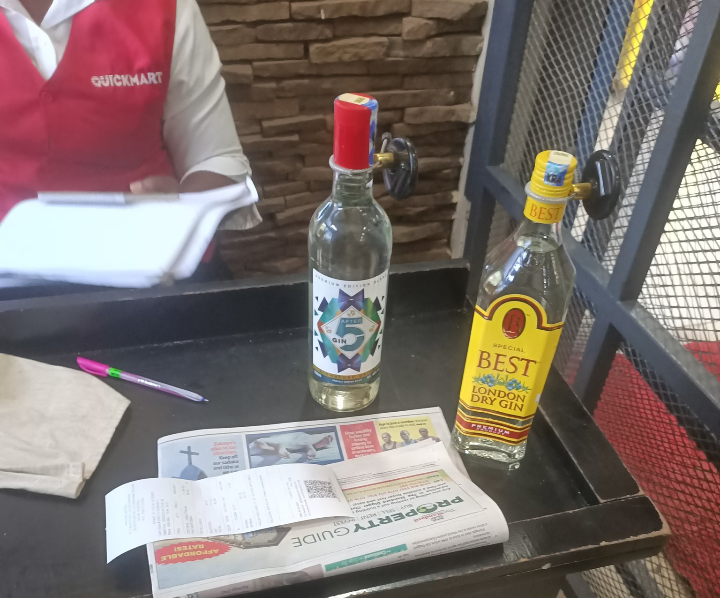A concerned customer recently raised an alert after discovering a counterfeit product at a Quickmart outlet in Kenya.
The customer used the Soma Label app, developed by the Kenya Revenue Authority (KRA), to verify the product’s authenticity.
This app, designed to help consumers identify counterfeit products, allows users to scan a product’s QR code or excise stamp to confirm whether it is genuine.
Unfortunately, the product in question failed this verification check, indicating it was likely counterfeit.
When the customer reported this to a store attendant, he was met with hostility.
Rather than addressing the issue, the attendant’s reaction discouraged further engagement.
Choosing to prioritize his safety, the customer decided to purchase a different brand of gin, which passed the verification process.
Interestingly, the store manager, aware of the potential ramifications, attempted to smooth things over by offering a discount on the verified gin and suggesting the customer “let it slide.”
While the customer appreciated the gesture, he made it clear that his primary motivation for sharing this experience was to raise public awareness about counterfeit products and the importance of using the Soma Label app.
Counterfeit goods, especially alcoholic beverages, are a growing concern in Kenya.
The sale of fake products not only harms legitimate businesses but also poses severe health risks to consumers.
Counterfeit alcohol is often produced under unsafe conditions, which can lead to contamination or excessive alcohol content.
The KRA’s Soma Label app, which was developed to combat such threats, is part of a broader strategy to safeguard consumers and promote the sale of genuine products.
Using this app allows consumers to access crucial information about a product, including its manufacturer, batch number, and production date, thus enabling informed purchasing decisions.
Moreover, it is the responsibility of retailers to ensure that the products they stock and sell to the public are legitimate.
Failing to do so not only risks their business but can also result in legal consequences, including penalties or forfeiture of the counterfeit goods.
Consumers, in turn, are encouraged to report suspicious products using the app and to share their experiences online or with authorities, thereby helping to curb the spread of counterfeit items.
This case highlights the need for vigilance among consumers and businesses alike.
The use of technology, like the Soma Label app, empowers consumers to make safer choices and avoid counterfeit products, promoting a fairer and healthier marketplace.





















Add Comment